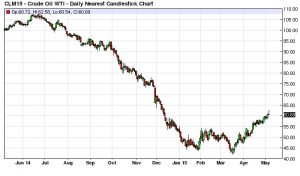Letter to Investors
We lead off this quarterly letter where we ended our previous one, with the same quotation by Ben Graham, the father of securities analysis. He wrote in his wonderful book, The Intelligent Investor, “Indeed, the investor’s chief problem – and even his worst enemy – is likely to be himself.” What a humiliation to discover that the main problem you’ll have as an investor is dealing with yourself! Mr. Graham knew whereof he spoke, because experience had taught him that his emotional temperament was, if unchecked, likely to be the chief impediment to successful investing.
It’s easy to become emotional about investing; those old demons, fear and greed, will raise themselves within each of us and turn our good ideas into dust. Emotions can play an injurious role even when we think we’re doing careful analysis. For example, an emotional bias toward or against a certain type of investment or a company may look like reasoned judgment, but it’s not the same. Reasoned judgment can be wrong, of course, just like emotional attachment can result in success. But when looking to improve my odds of success, give me thinking over feeling every time.
But what about professional investors? Do investment managers ever get frustrated? I can’t speak for the entire industry, but from my desk the answer is an emphatic “Yes!” While we rely extensively on quantitative methods to do our jobs correctly, at the end of the day we are human beings attempting to make sound judgments. How do we keep emotions out of the loop? While one can never completely eliminate emotional responses, we have found that our collaborative investment process is the best way to keep decision-making as rational as possible.
A collaborative process means that each of our investment teams works as a unit, the polar opposite of the so-called “star system,” where a single manager makes all decisions. When one must test his or her ideas before colleagues and submit to their criticism, we believe better (and less emotional) decisions are produced. In particular, while one person may get emotionally positive or negative on an investment, it’s unusual that an entire team can get so emotionally involved. While we individually work hard to keep emotions out and bring rationality in, it simply works better when a competent team works together to stay focused on good decision-making. It’s not a guarantee of success, but we think it improves the odds.
We thank you for your confidence in us.
Gratefully,
Mark A. Keller, CFA
CEO and Chief Investment Officer
View the PDF



